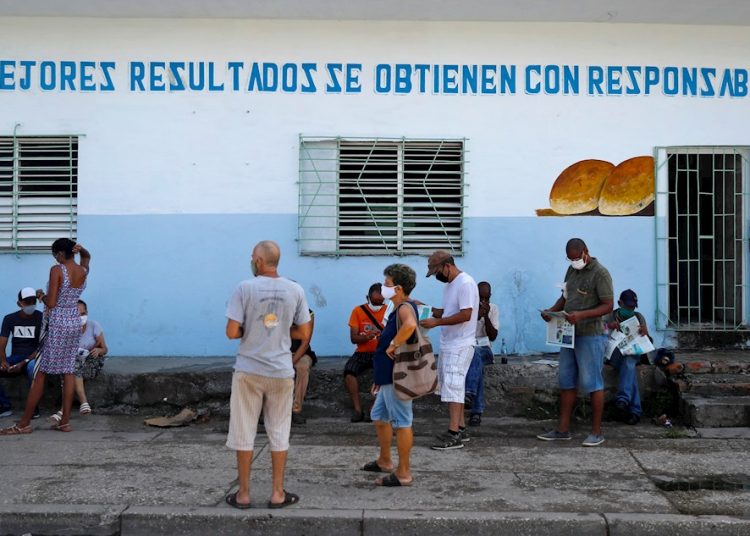Havana is subject to the most restrictive measures imposed by the Cuban government for at least 15 days since the beginning of the pandemic, which include a curfew as of 7:00 p.m., the prohibition to leave the city and hefty fines for non-compliance.
The authorities affirm that the rebound in coronavirus cases in the capital (they went from reaching zero in mid-July to registering several dozen a day in the second half of August) justify the restrictions that will remain in force in the first half of September.
Curfew and fines
From seven in the evening to five in the morning the streets must be empty, under surveillance by the police, who will punish anyone who goes out with fines of between 2,000 and 3,000 Cuban pesos (between 80 and 120 dollars), a high amount in a country where the average state salary does not reach 45 dollars.
In the case of children, the elderly and people with disabilities, they may not go out at any time; the use of recreational and sports areas will also be restricted, alcoholic beverages can’t be consumed in public places, and no kind of parties will be allowed.
Gobierno de La Habana endurece sanciones para frenar contagios de coronavirus
Likewise, entry and exit to Havana is prohibited at all times, so the city has been cut off from the rest of the country and can only be abandoned for exceptional reasons.
This provision eliminates in practice the transfer of Havanans to tourist areas in other provinces, with which some 2,970 hotel reservations will be reimbursed or postponed, according to data from the provincial government.
The restrictions also include a greater promotion of teleworking―according to the authorities, more than 118,000 people will take advantage of this modality―and the reduction of opening hours in shops until 4:00 p.m. (local time) from Monday to Saturday and 1:00 p.m. on Sundays.
Until the 15th or later
The new measures will be maintained beyond September 15 in the event that the spread of the coronavirus cannot be contained, which since March has accumulated 4,065 cases and 95 deaths.
This Tuesday, Cuba registered another death from the disease and 33 new positive cases, 23 of them in Havana.
The capital is subjected to these restrictions at a time of severe economic crisis and a generalized shortage of basic products throughout Cuba.
In an attempt to improve access to food and toiletries, 151 new points of sale have been set up during these 15 days in places where “supplies are scarce,” according to Havana authorities.
The city of more than 2 million inhabitants, the epicenter of COVID-19 in Cuba, had to cancel its reopening earlier this month due to several outbreaks that extended to other regions of the country.

In recent weeks Havana has been the only Cuban province in phase 0 or “stage of limited transmission” of coronavirus, which is why strong measures were already in force such as the suspension of public transportation, the limitation of access to the province, the closure of most of the services and the mandatory use of the mask outside the home.
In the rest of the island, most of the territories are in the third and last phase of the national reopening plan, except for the nearby Artemisa and Mayabeque where phase 2 is maintained, which eases restrictions such as the use of the mask, required only in closed places, activates local tourism and restores services to 50%.
Due to this situation, Havana did not start the school year on Tuesday like the rest of Cuba and neither does it plan to open its borders until it comes out of this health crisis.










